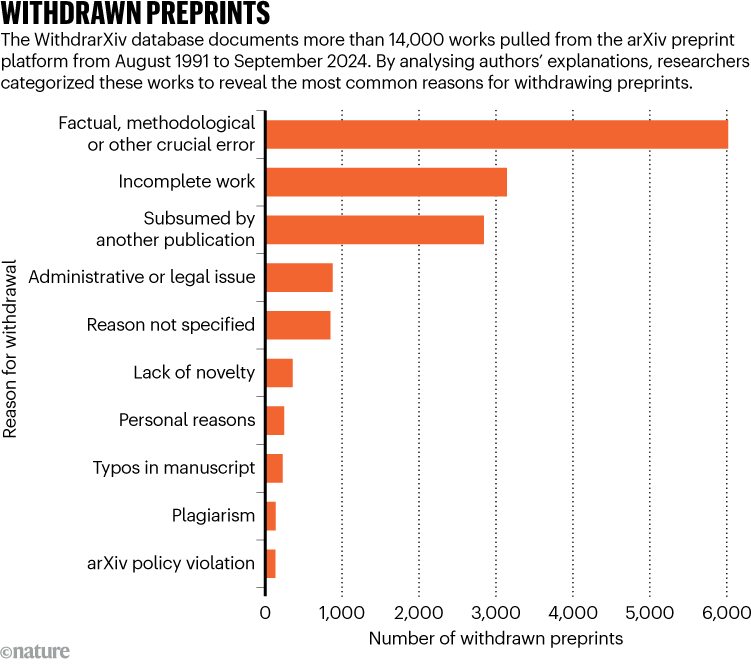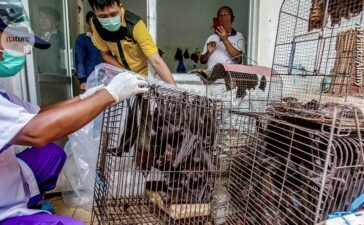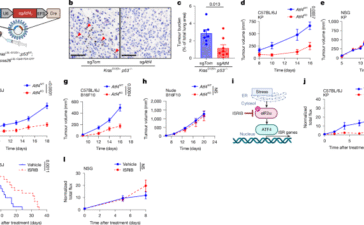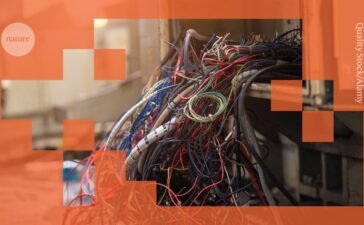
Thousands of preprints have been withdrawn from the arXiv preprint server because of factual or methodological errors.Credit: Ralf Geithe/Getty
Researchers have launched a database of more than 14,000 studies that have been withdrawn from the preprint server arXiv since its launch in 1991.
As well as shedding light on why those preprints were pulled from arXiv, the data set — called WithdrarXiv — aims to spur the creation of automated tools that flag potential errors to researchers hoping to submit manuscripts, says Delip Rao, a computer scientist at the University of Pennsylvania in Philadelphia, and a co-author of a study describing the tool. Most preprints have not been through formal peer-review or quality-assurance processes.

Source: Ref. 1
In the study, itself posted to arXiv on 4 December 20241, Rao and colleagues categorized withdrawn preprints using comments provided by authors about the reasons for removing the study, which ranged from crucial errors to violations of policy. They found that the presence of factual, methodological or other important errors were the most commonly cited reason for withdrawal, with more than 6,000 preprints pulled from the platform because of this. More than 3,100 preprints were withdrawn because they were incomplete or there was more work in the pipeline, and more than 2,800 preprints were pulled because they had been subsumed by another publication (see ‘Withdrawn preprints’).
This is in contrast to many retractions issued by scholarly journals, the study says. These often take place after a peer-reviewed paper has been published, for reasons related to academic misconduct — such as plagiarism or data falsification — as well as honest errors.
Biomedical paper retractions have quadrupled in 20 years — why?
You Might Also Like
what we do and don’t know
We are 23 of the 27 original members of the Scientific Advisory Group for the Origins of Novel Pathogens (SAGO)...
Five ways increased militarization could change scientific careers
Ukrainian soldiers test drones in Donetsk, Febuary 2025.Credit: Serhii Mykhalchuk/Global Images Ukraine via GettyMilitary budgets are growing, especially in larger...
The integrated stress response promotes immune evasion through lipocalin 2
Cell linesThe KP cells used here were established previously66. Atf4 and Lcn2 knockout cell lines were generated by transient transfection...
How AI slop is causing a crisis in computer science
AI slop is flooding computer science journals and conferences.Credit: Quality Stock/AlamyFifty-four seconds. That’s how long it took Raphael Wimmer to...











